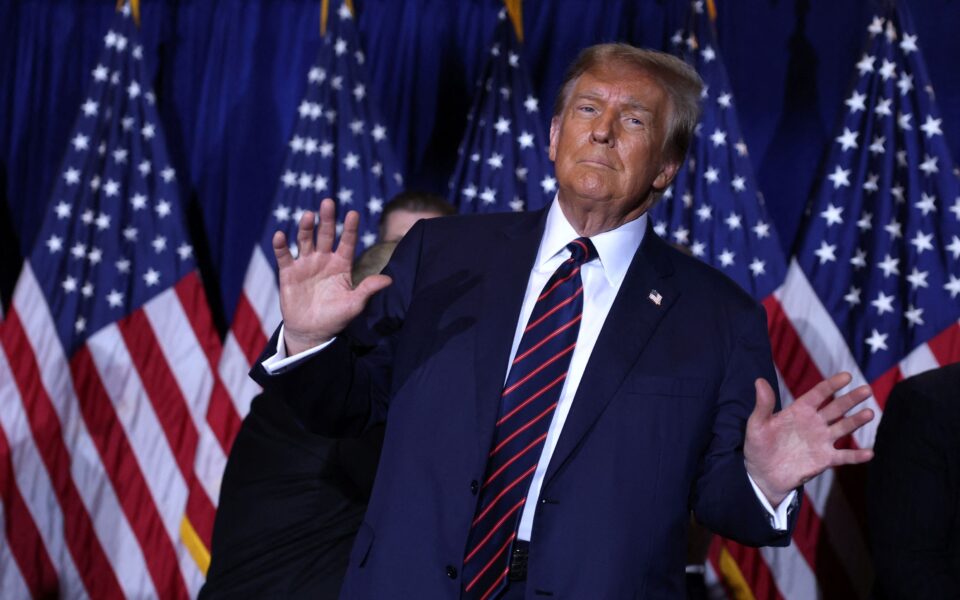When Greek politicians talk about Trump

Ten months before the presidential elections in the United States, all indications, including the most important of all, the results of the first two primaries, are that Donald Trump will probably be again – for the third time in a row – the Republican candidate for the presidency.
This means that, regardless of who his Democratic opponent will be, his return to the White House is, according to the polls, a very serious possibility.
Given this fact, the political leaders of third countries have every reason to be careful in their statements and not leave room for interpretations that would potentially complicate their countries’ future relations with the US.
In this context, Greek politicians must also be frugal in their comments. Prime Minister Kyriakos Mitsotakis was just that when he was asked about it in a recent interview in Davos.
Any insinuations, even indirect or in the form of humor, that could cause damage in bilateral relations if the occupant of the White House changes must also be avoided.
Those who were at the joint press conference by Trump and the then Greek prime minister, Alexis Tsipras, in October 2017, in the Rose Garden of the White House, remember the latter’s difficult moment when an American journalist informed Trump about a negative statement Tsipras had previously made about him – as of course most European leaders had done before his election. The incident was awkward and required special handling.
When European Central Bank President Christine Lagarde was asked about this a few days ago in Davos, she was particularly careful to emphasize the importance of the relationship with the world’s largest economy. She said this despite the fact that her role as head of the ECB is different, in the sense that she is not the leader of a country and therefore has more leeway.
As far as Greece is concerned, the burden falls mainly on Mitsotakis, as he will be called upon to manage Greek-American relations and developments in the wider region in a possible new Trump presidency.
The tactic required is simple: careful statements and a focus on highlighting the long-lasting ties of the two countries, as well as the strategic interests served by the deepening of multilevel Greek-American cooperation that transcends personalities and ideologies
And avoid commenting on political developments in the US and direct or indirect references to “preferences.” Greek politicians that might be asked about the US elections should limit themselves to the self-evident point that the choice of leaders and governments is the exclusive right of the citizens of each country which must be respected by the leaders of other nations.
There is no need for public statements and characterizations that will not bring any benefits today, but risk potentially costing the country after 2025.





